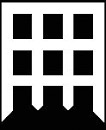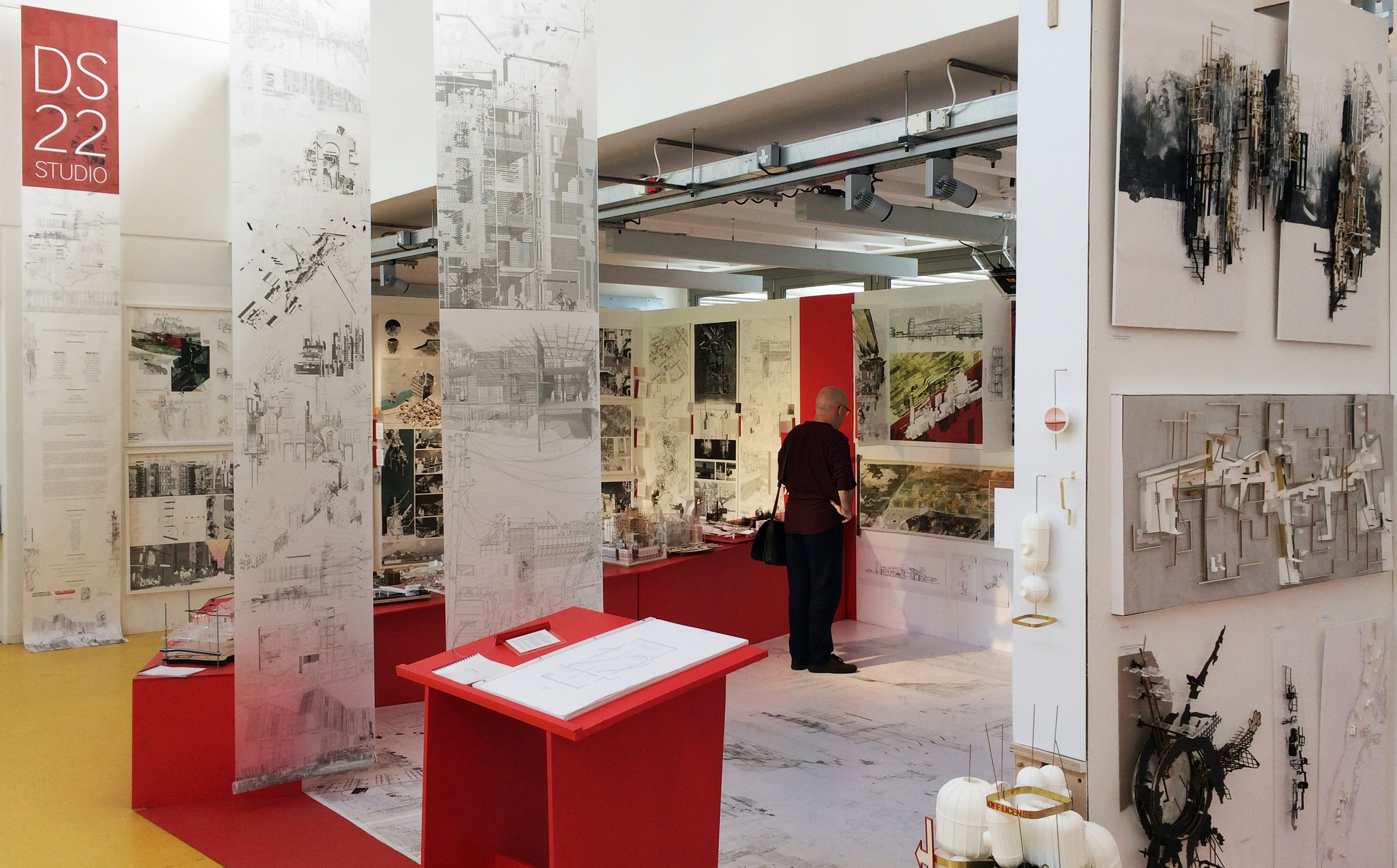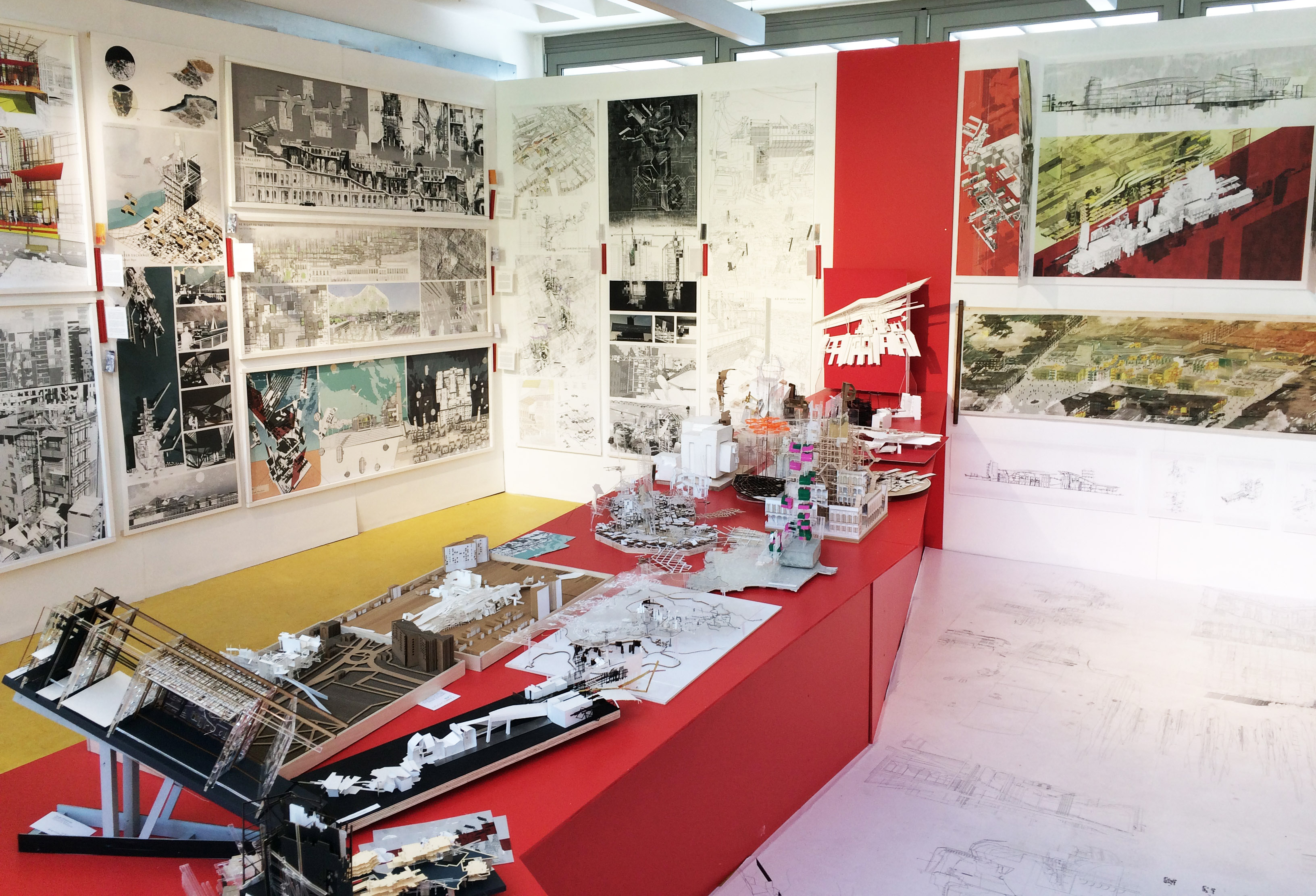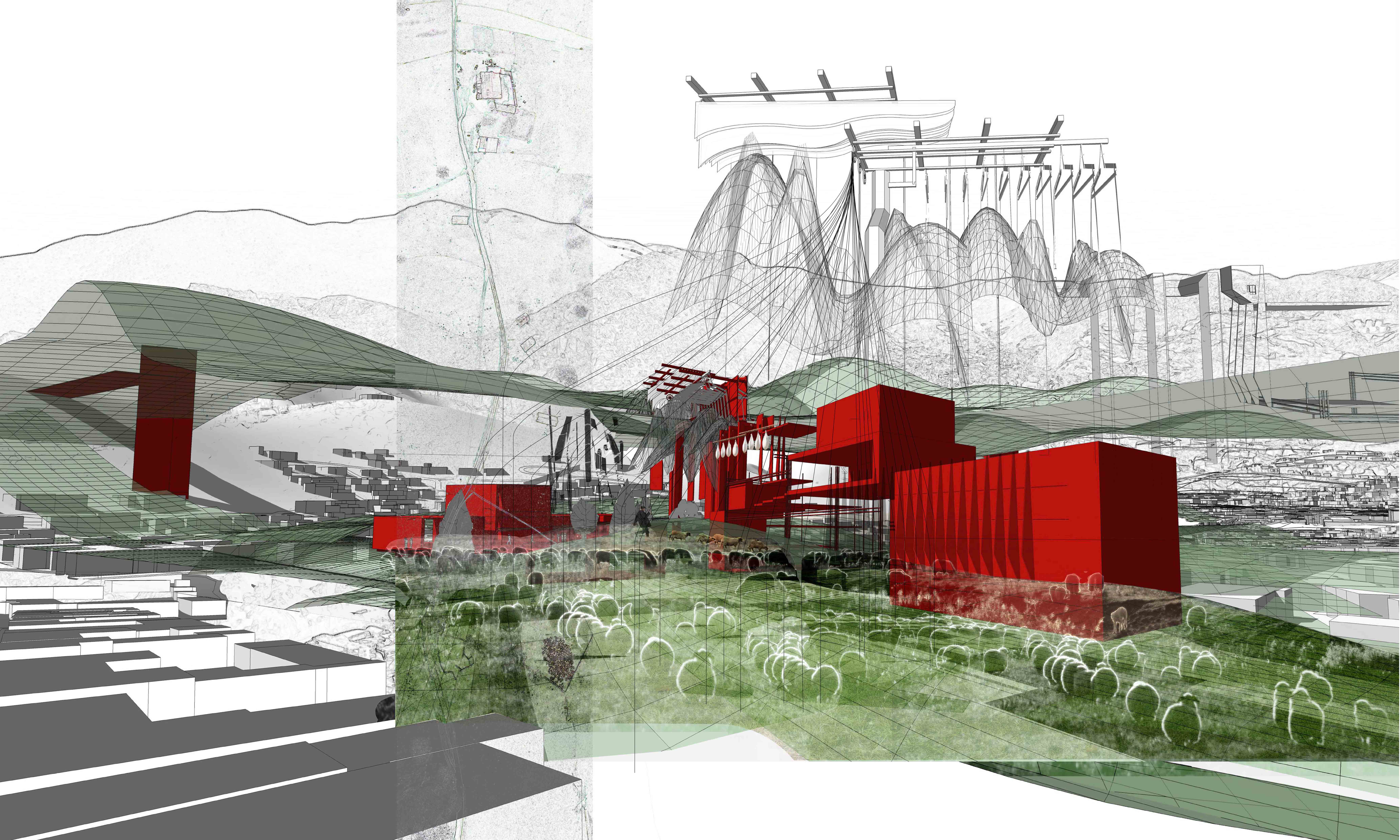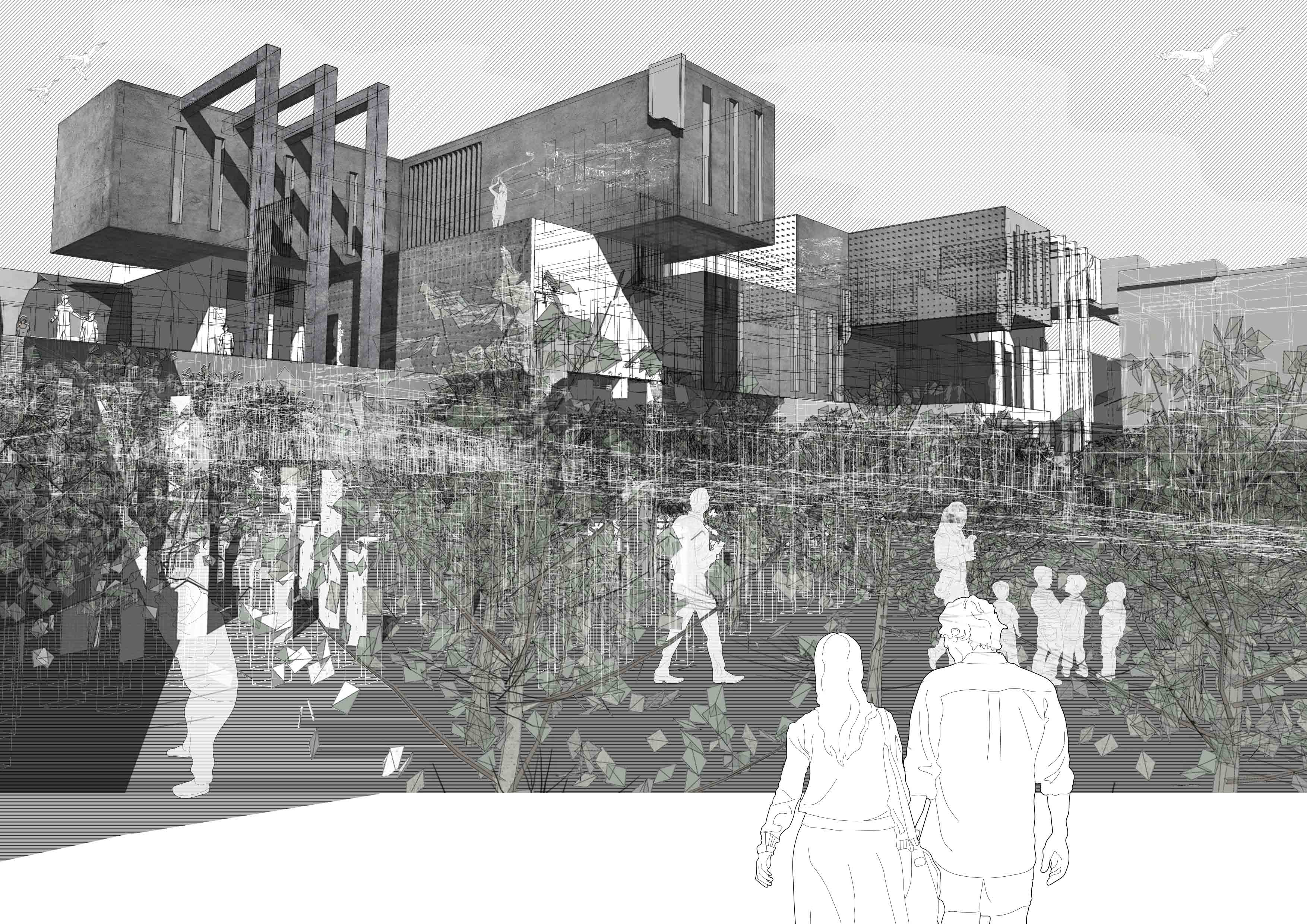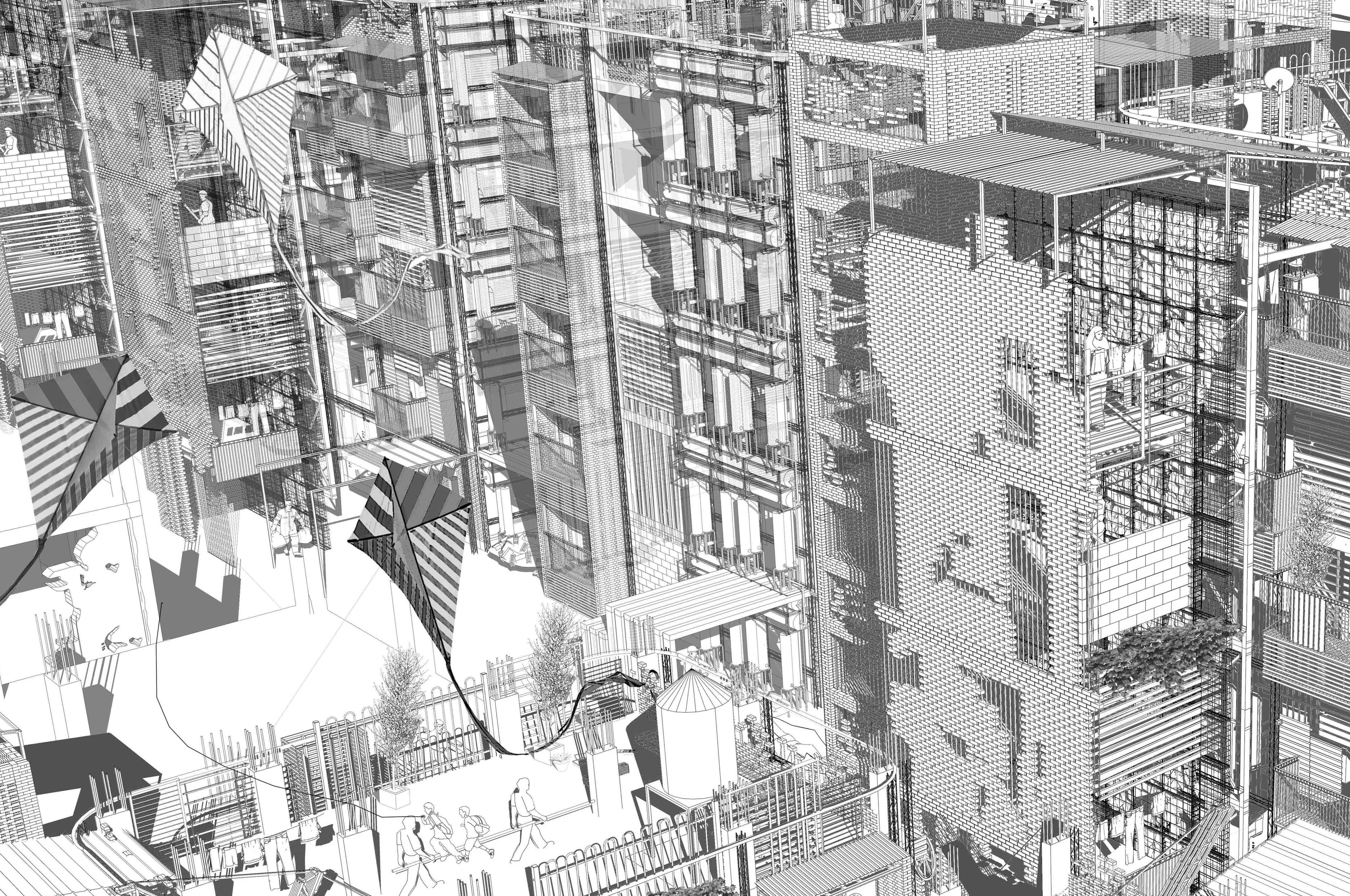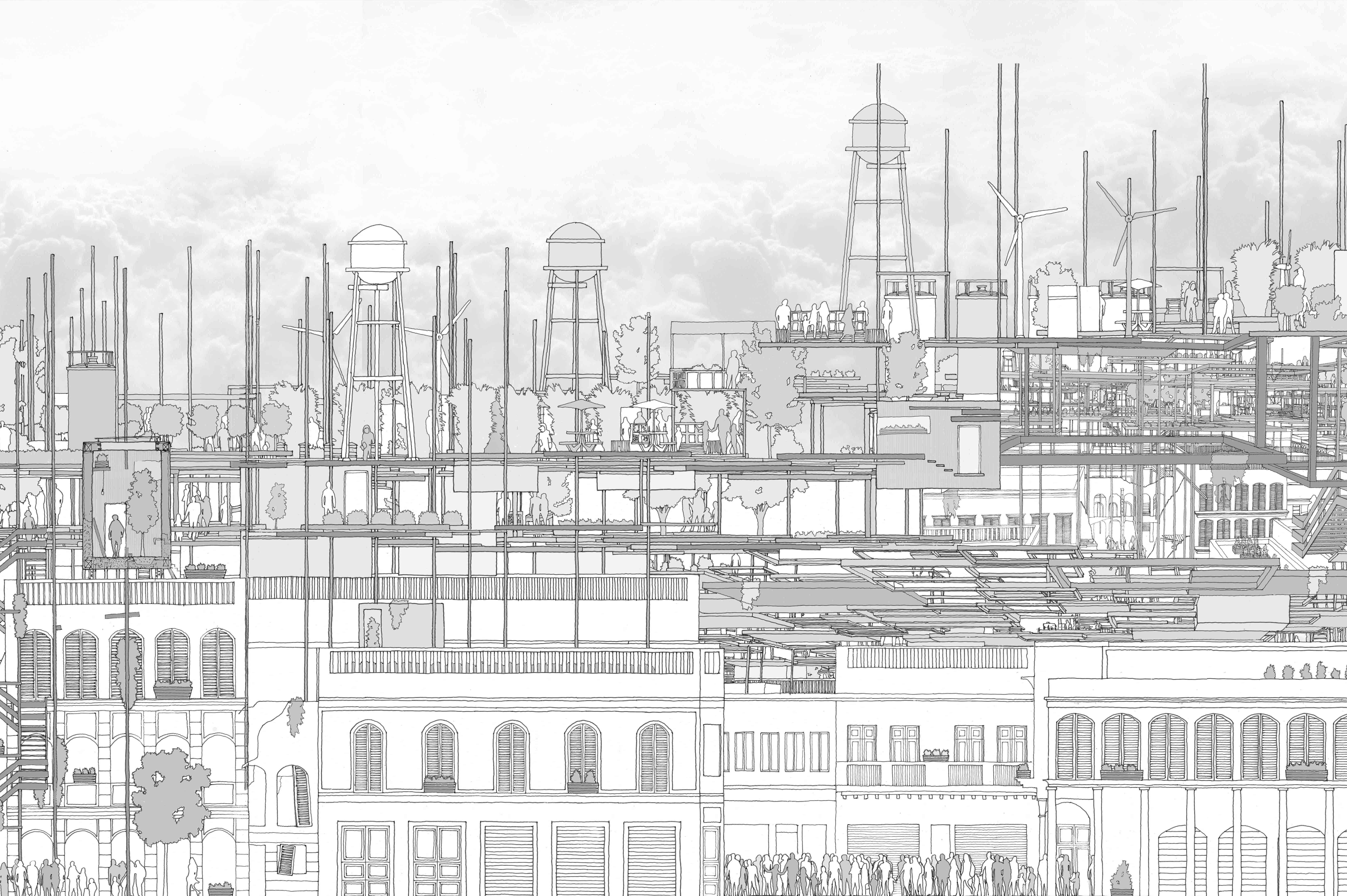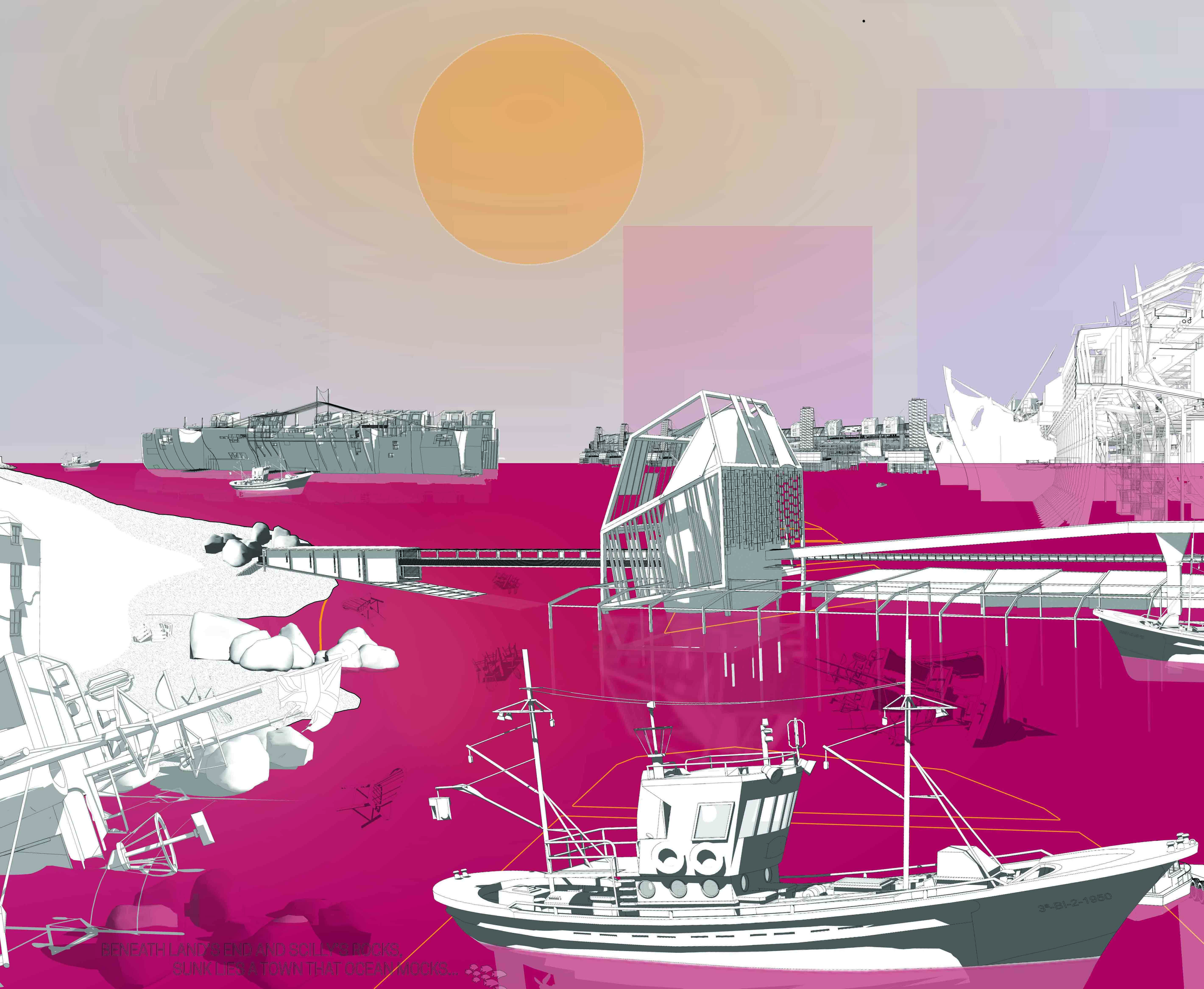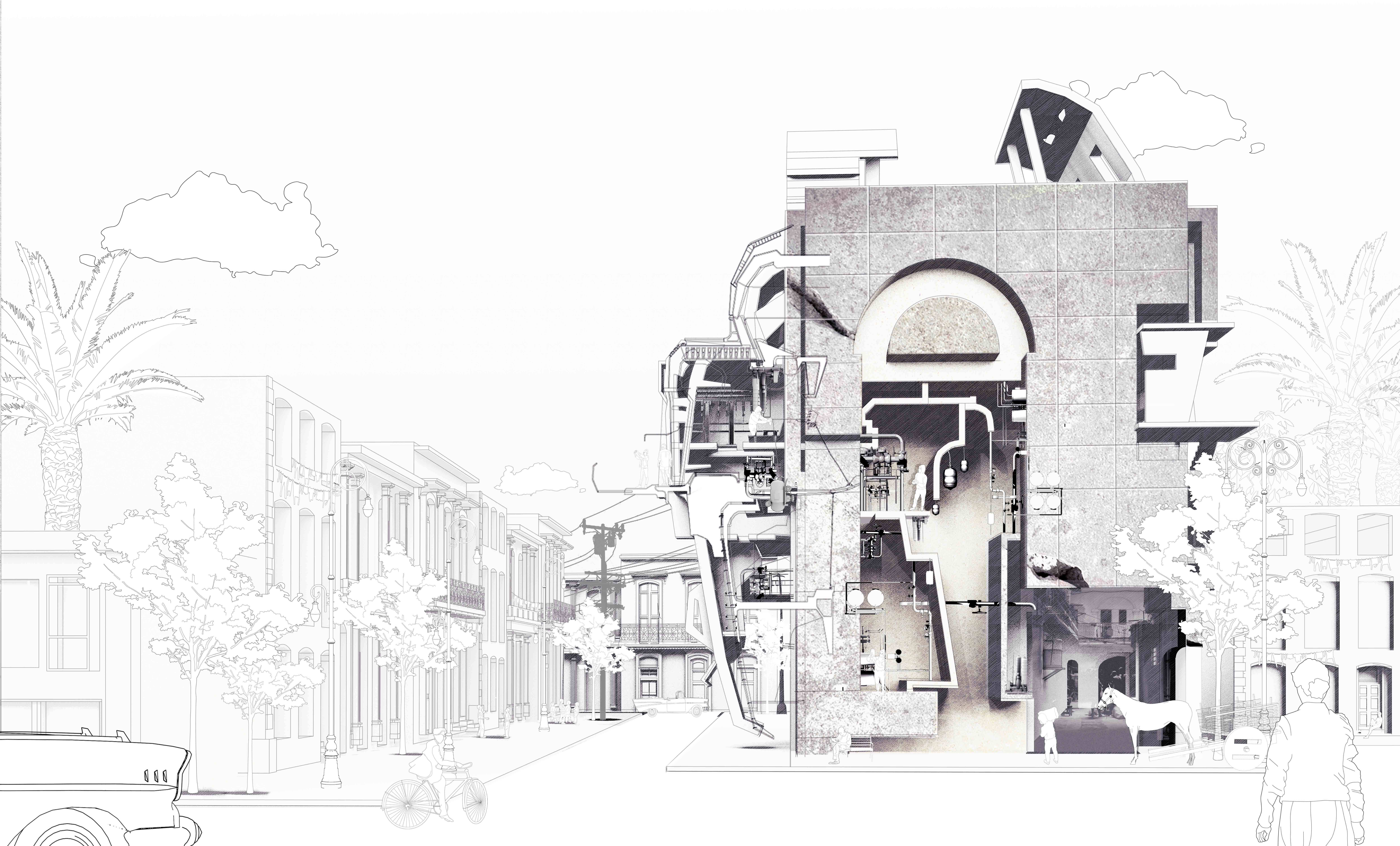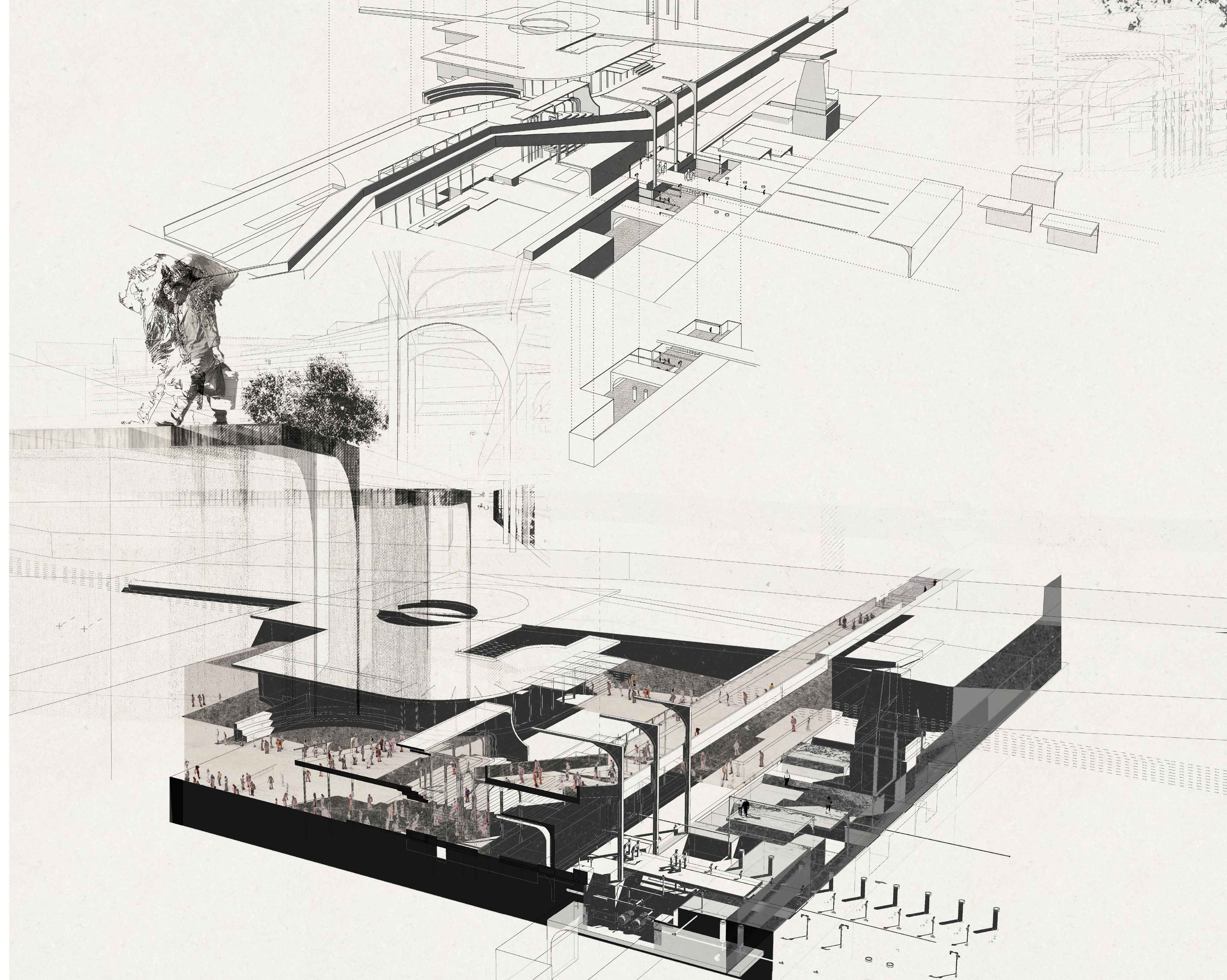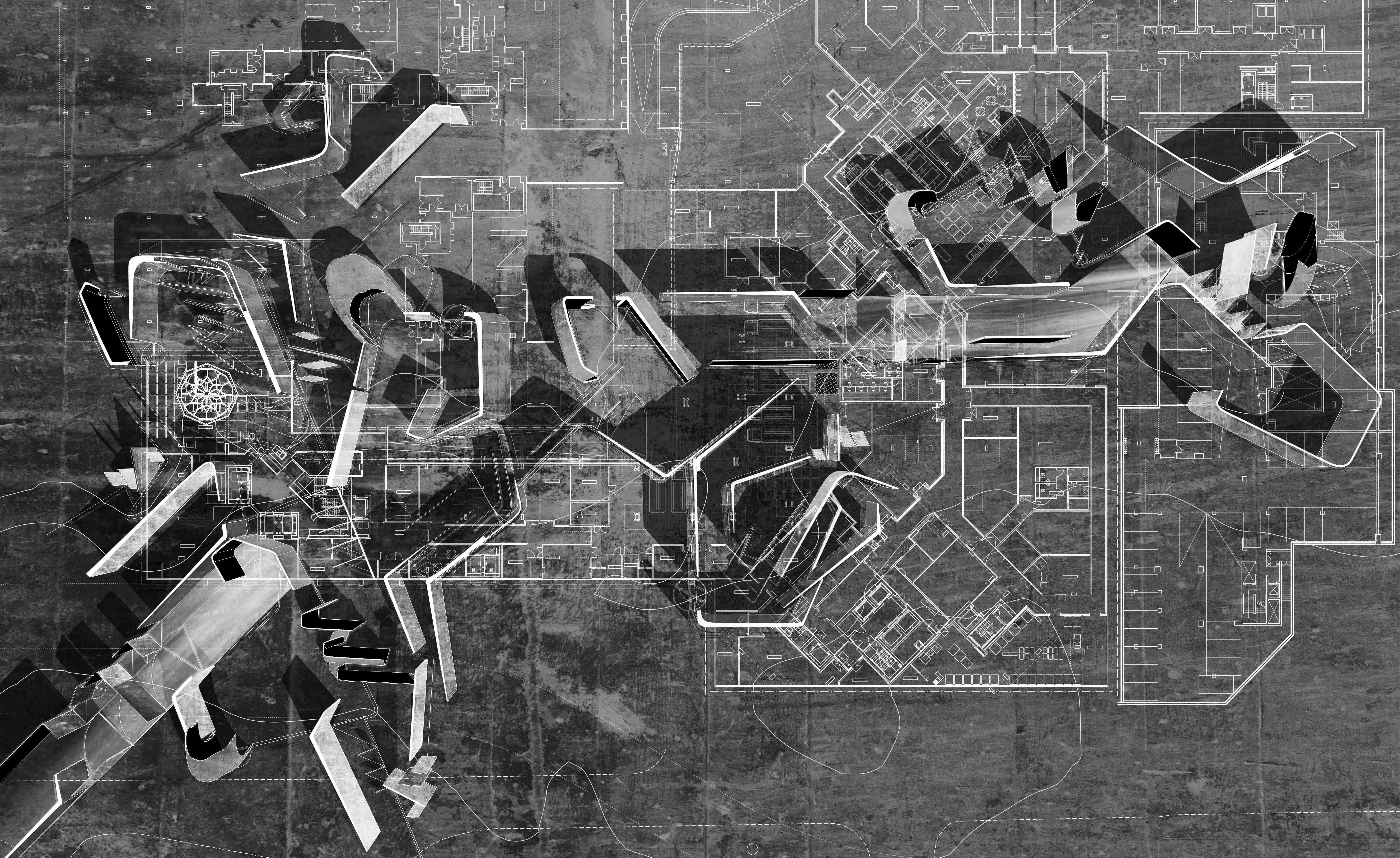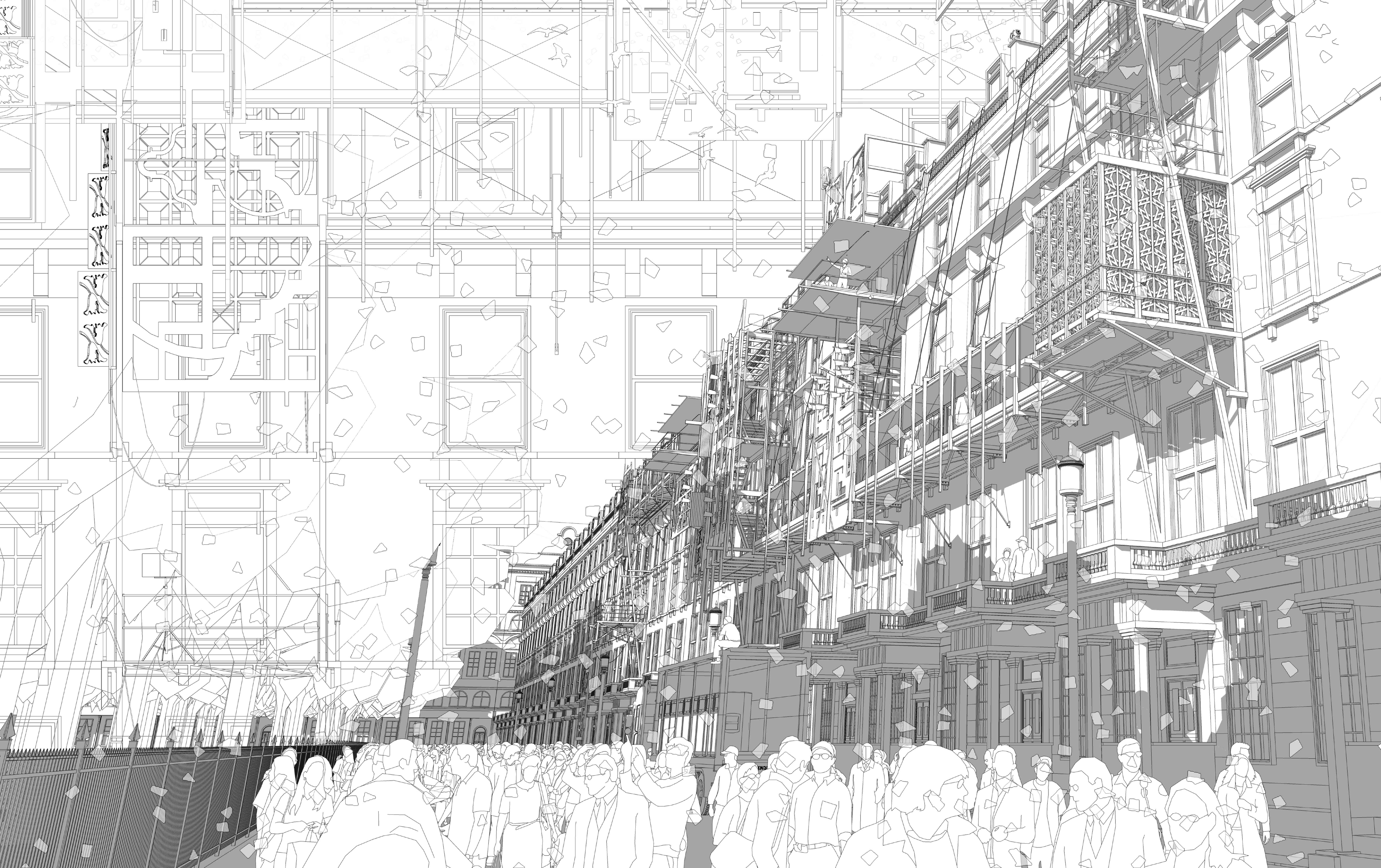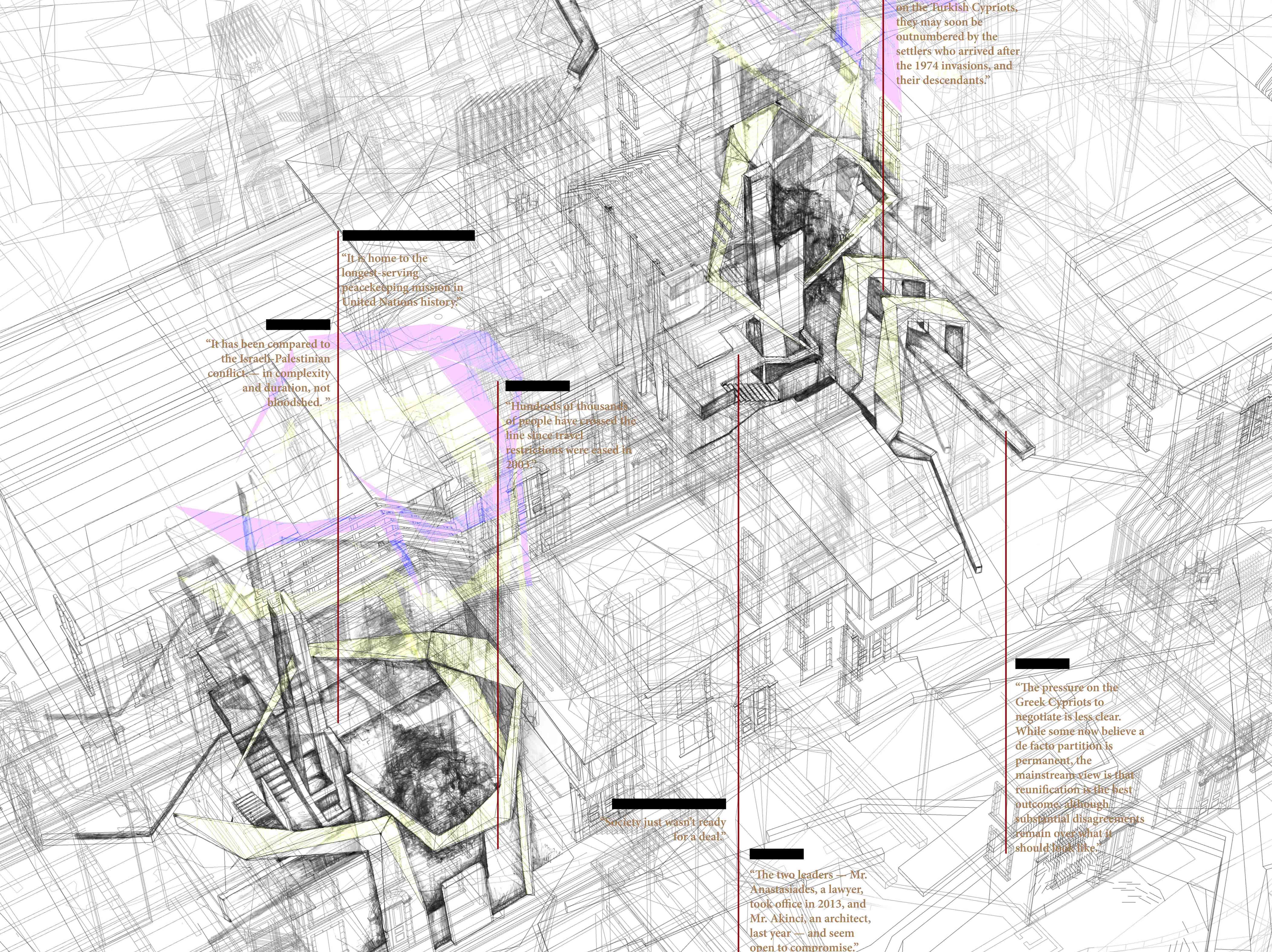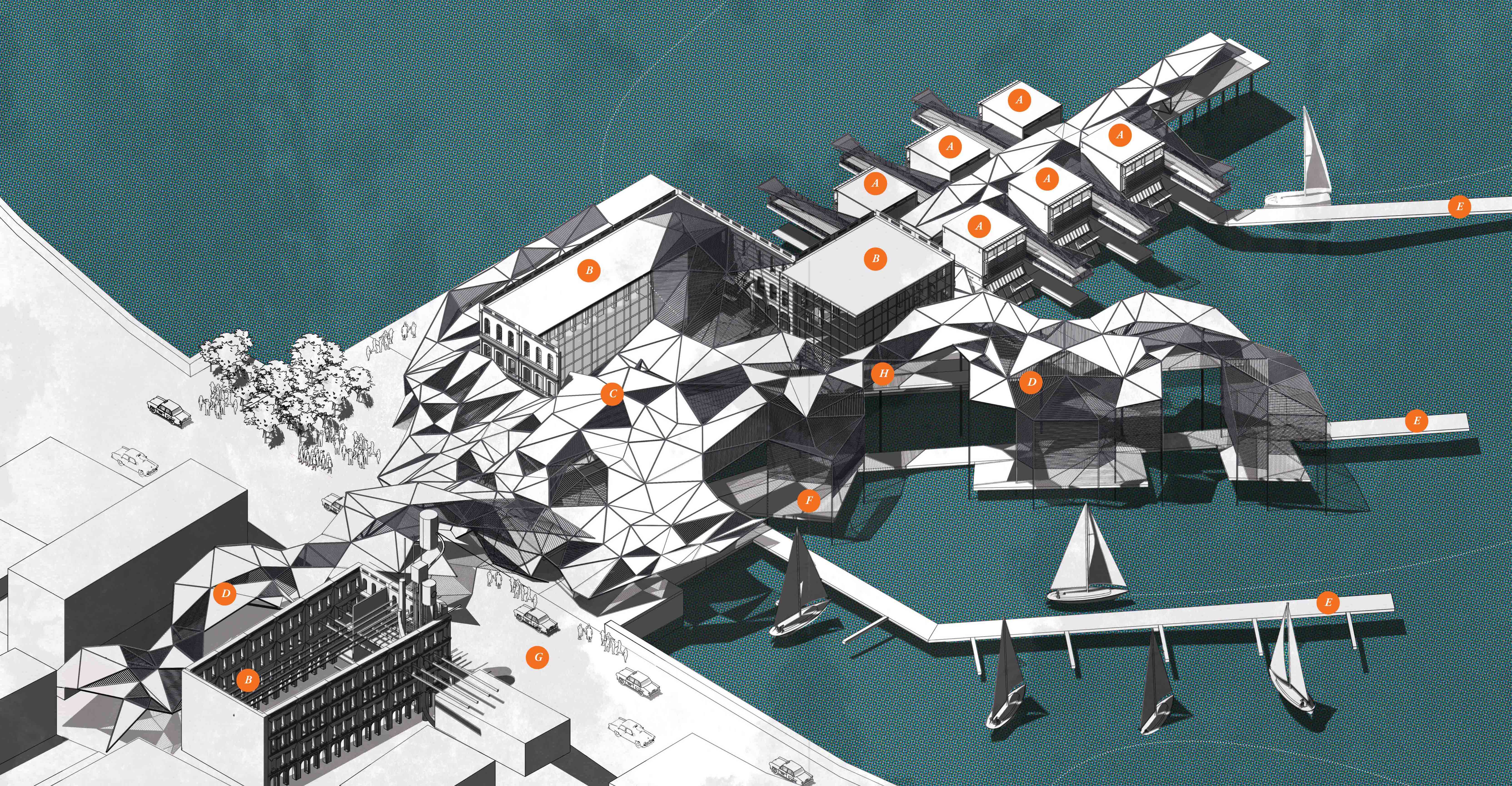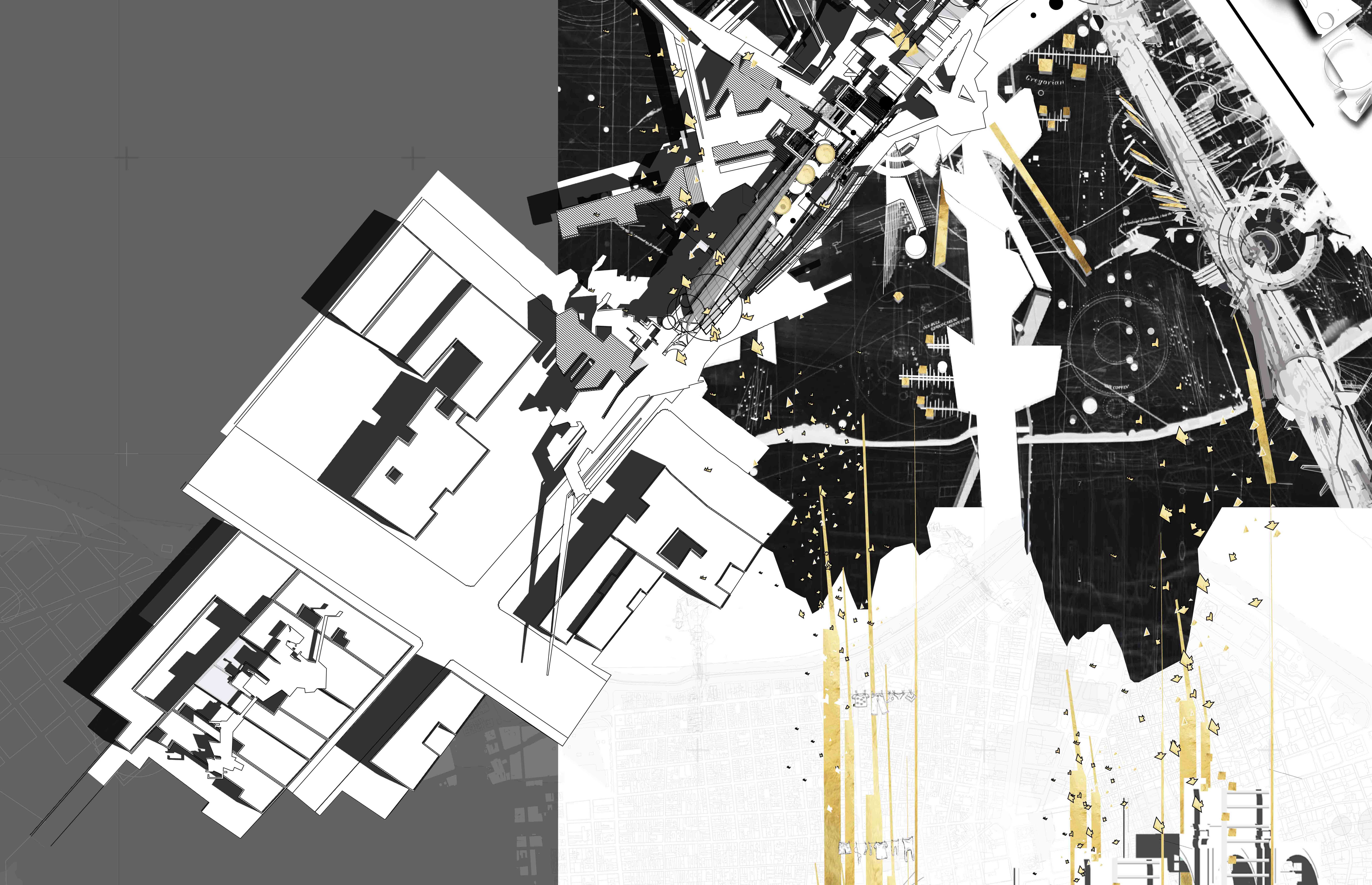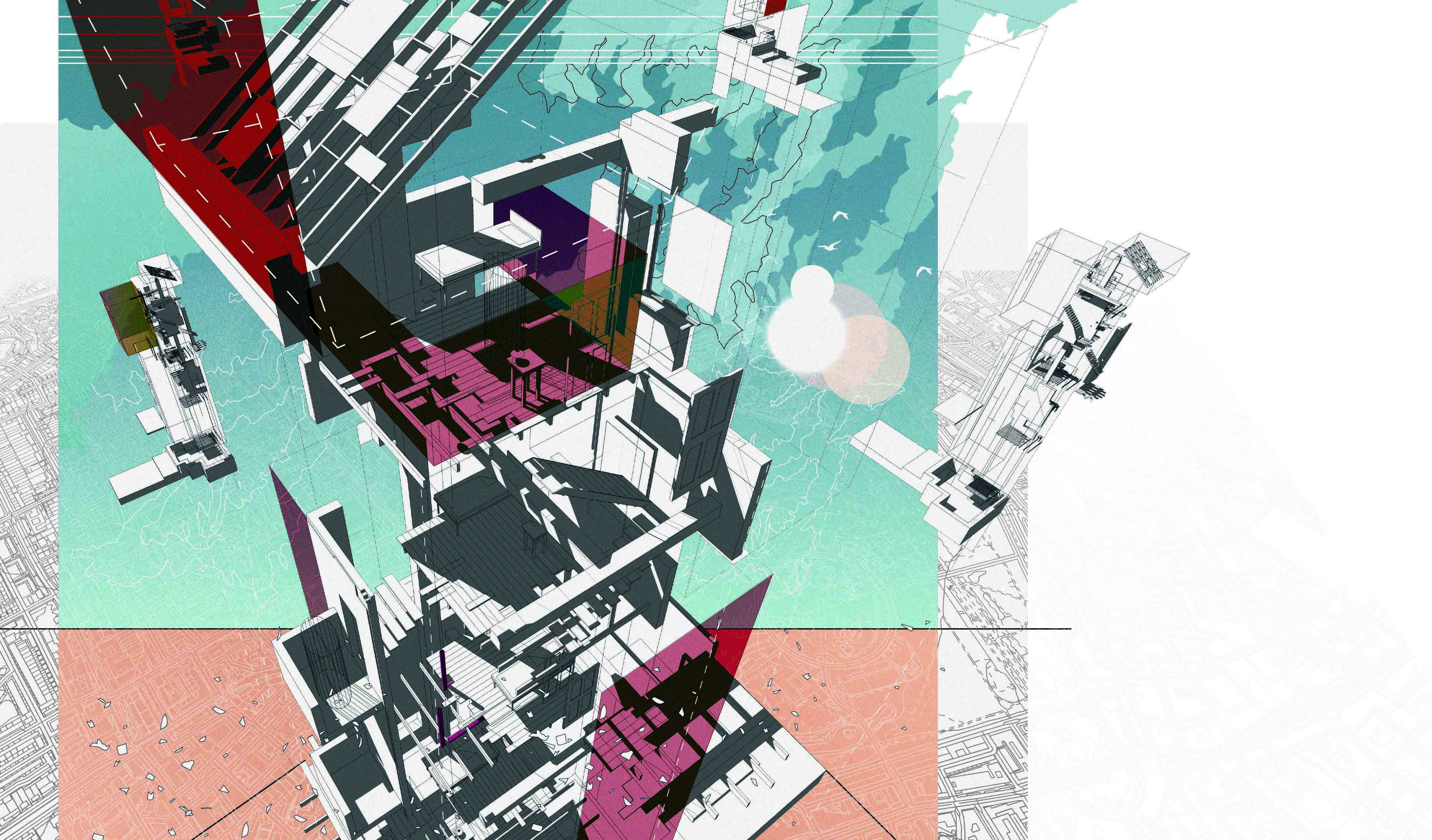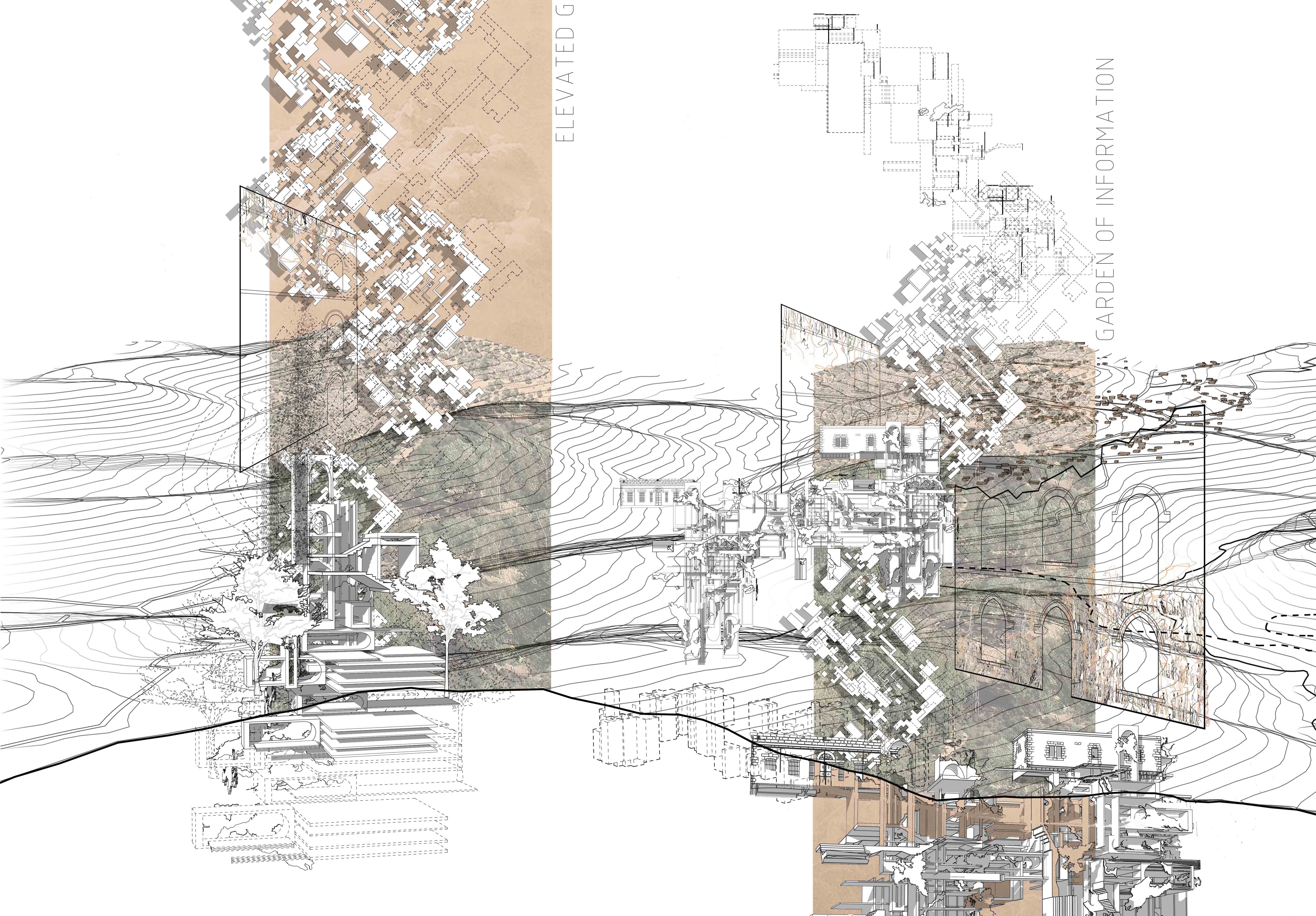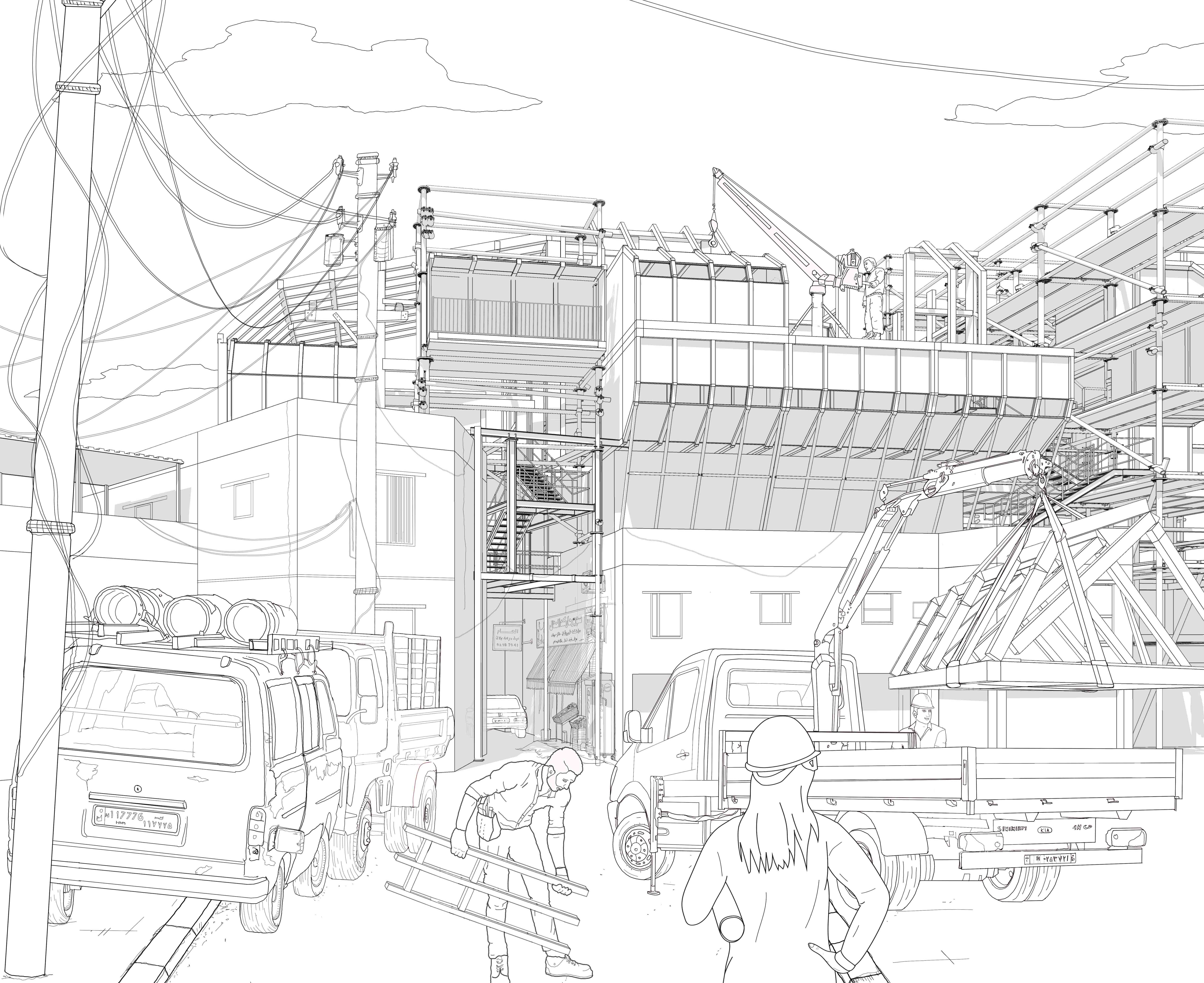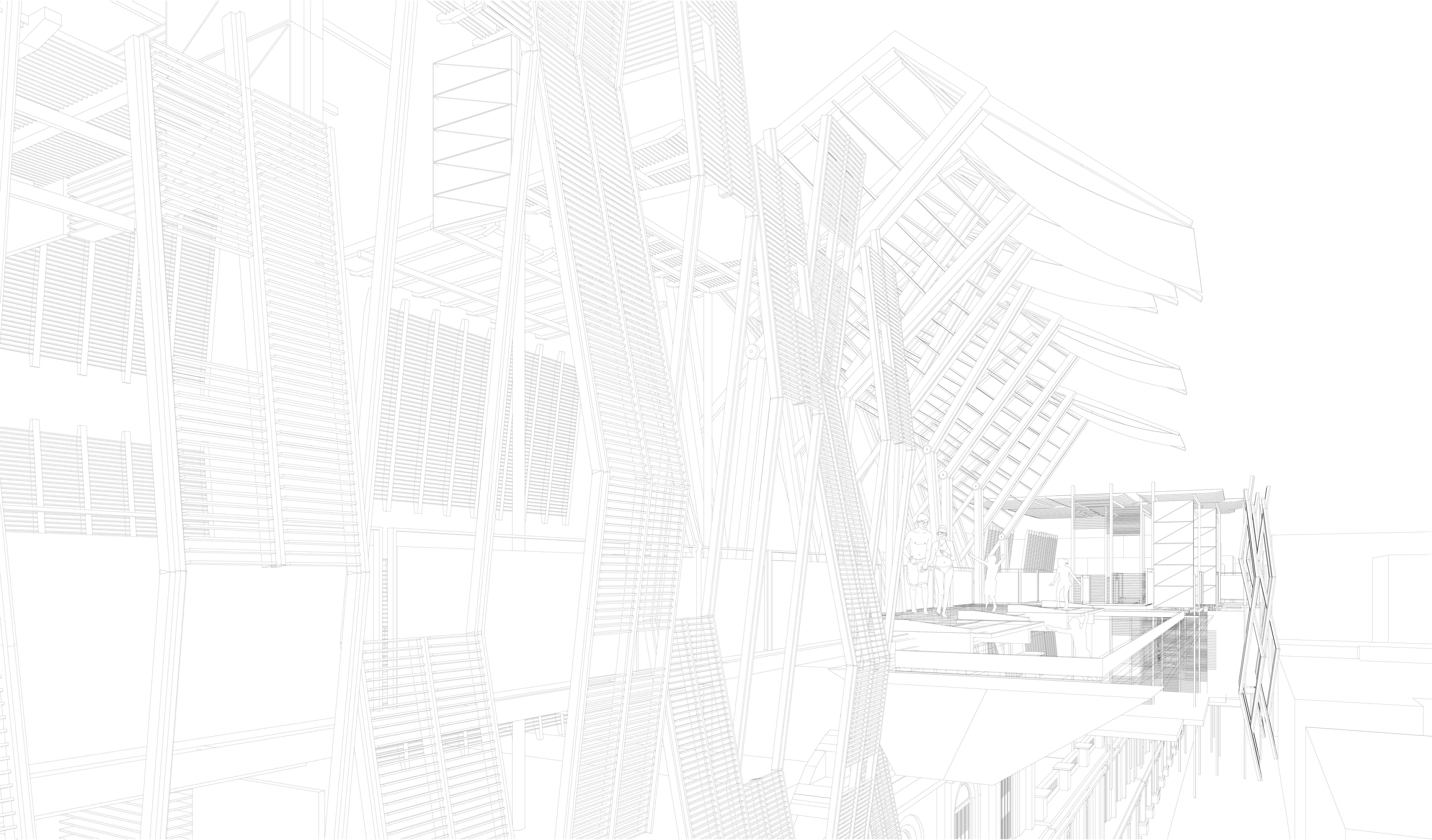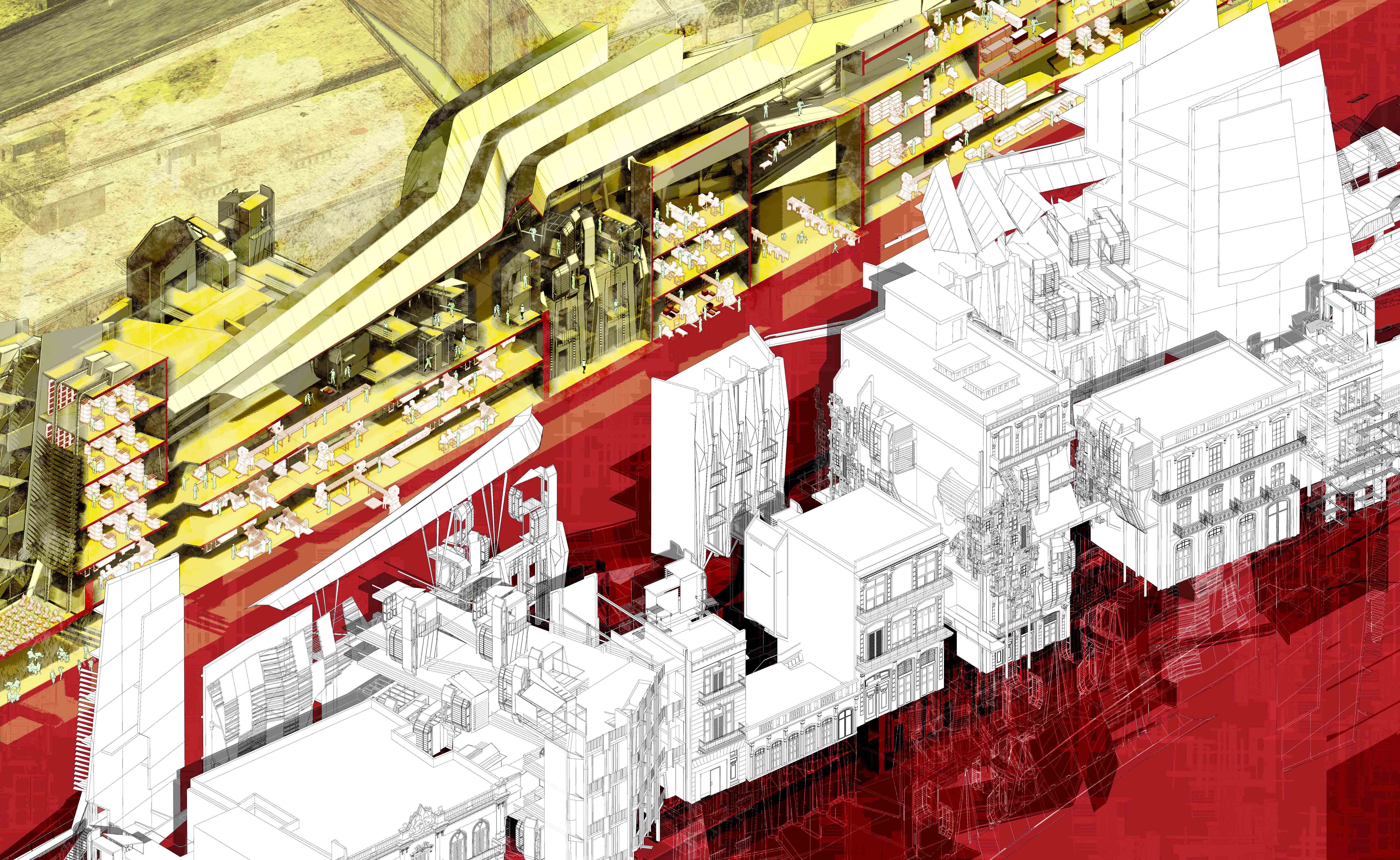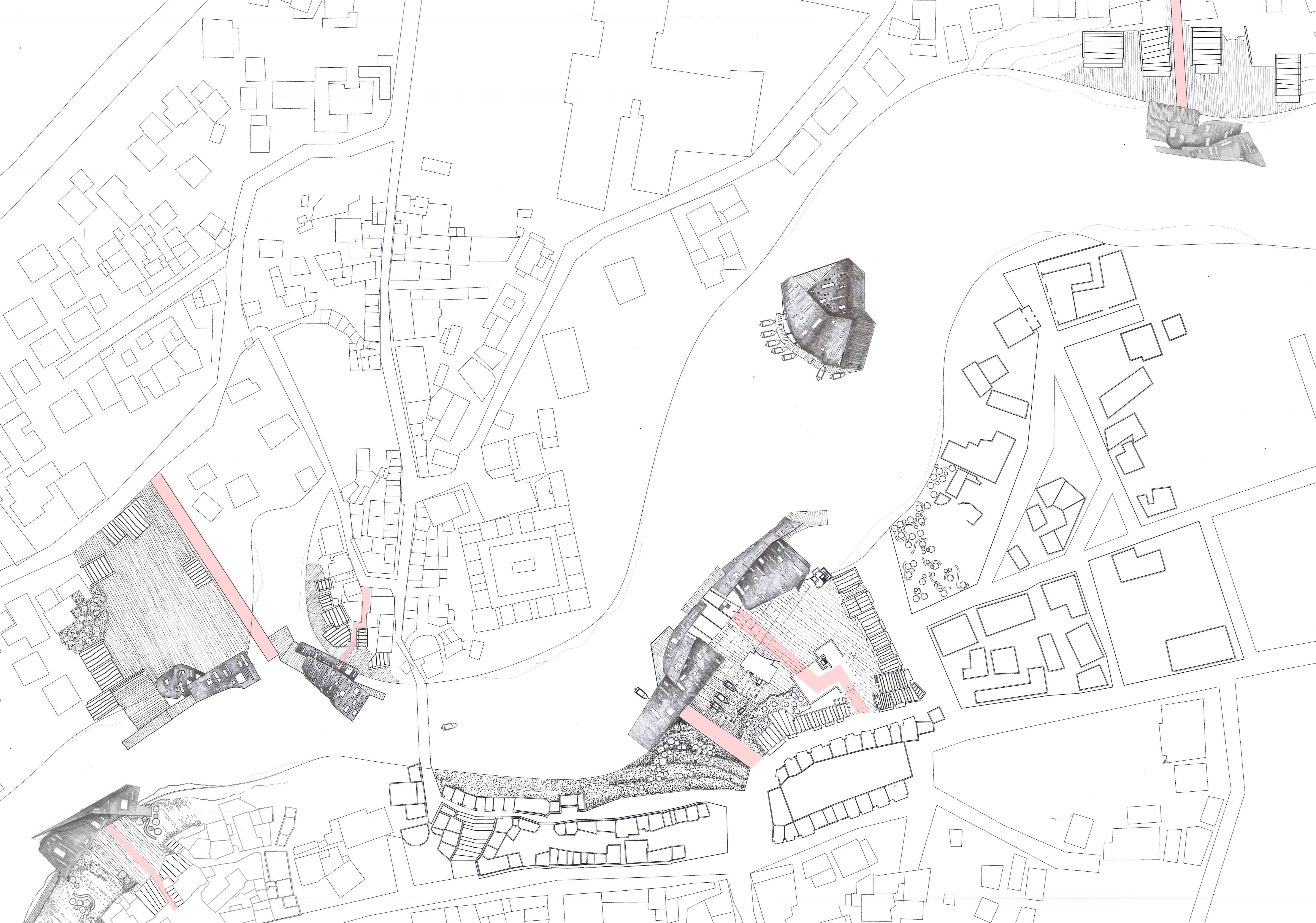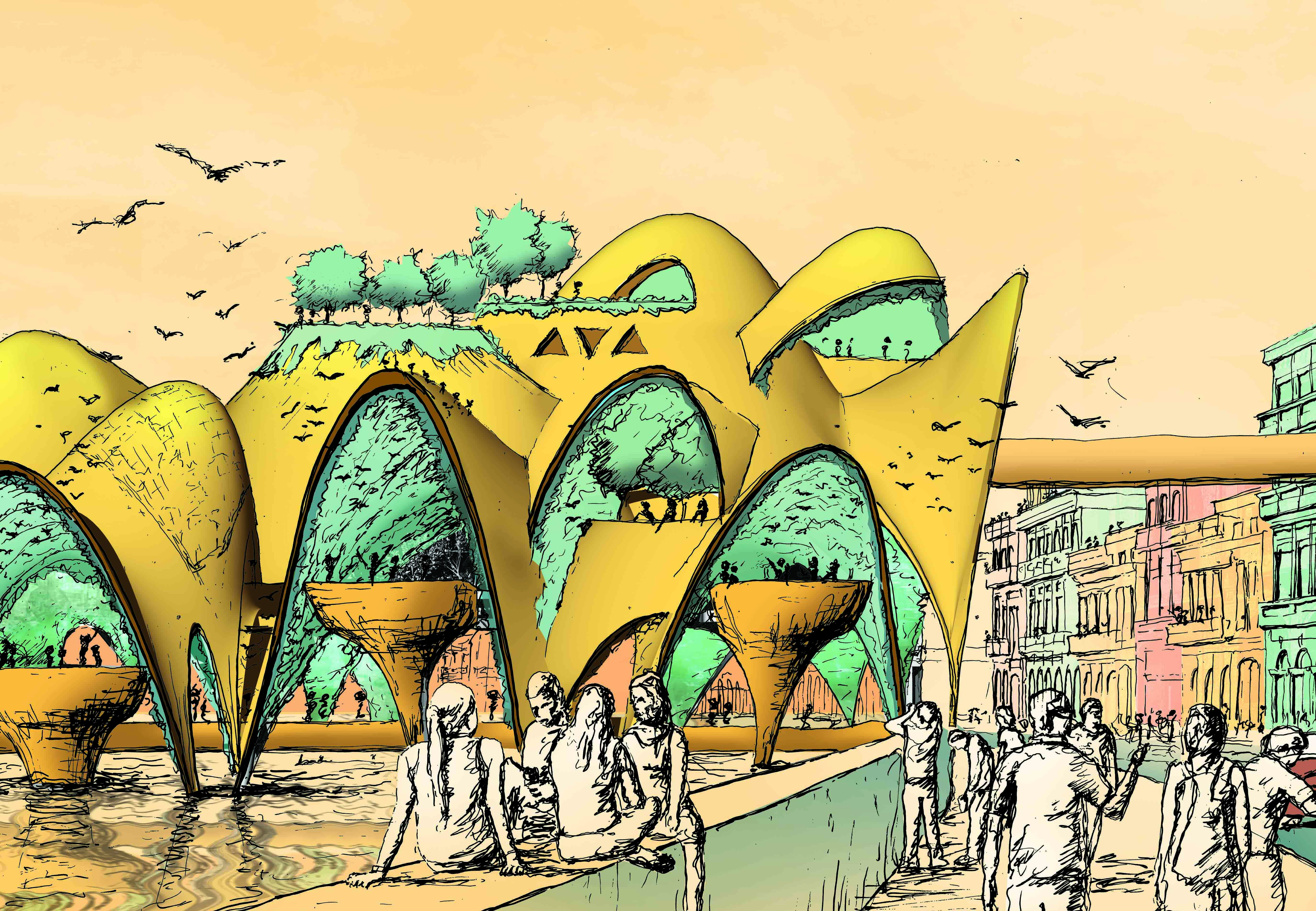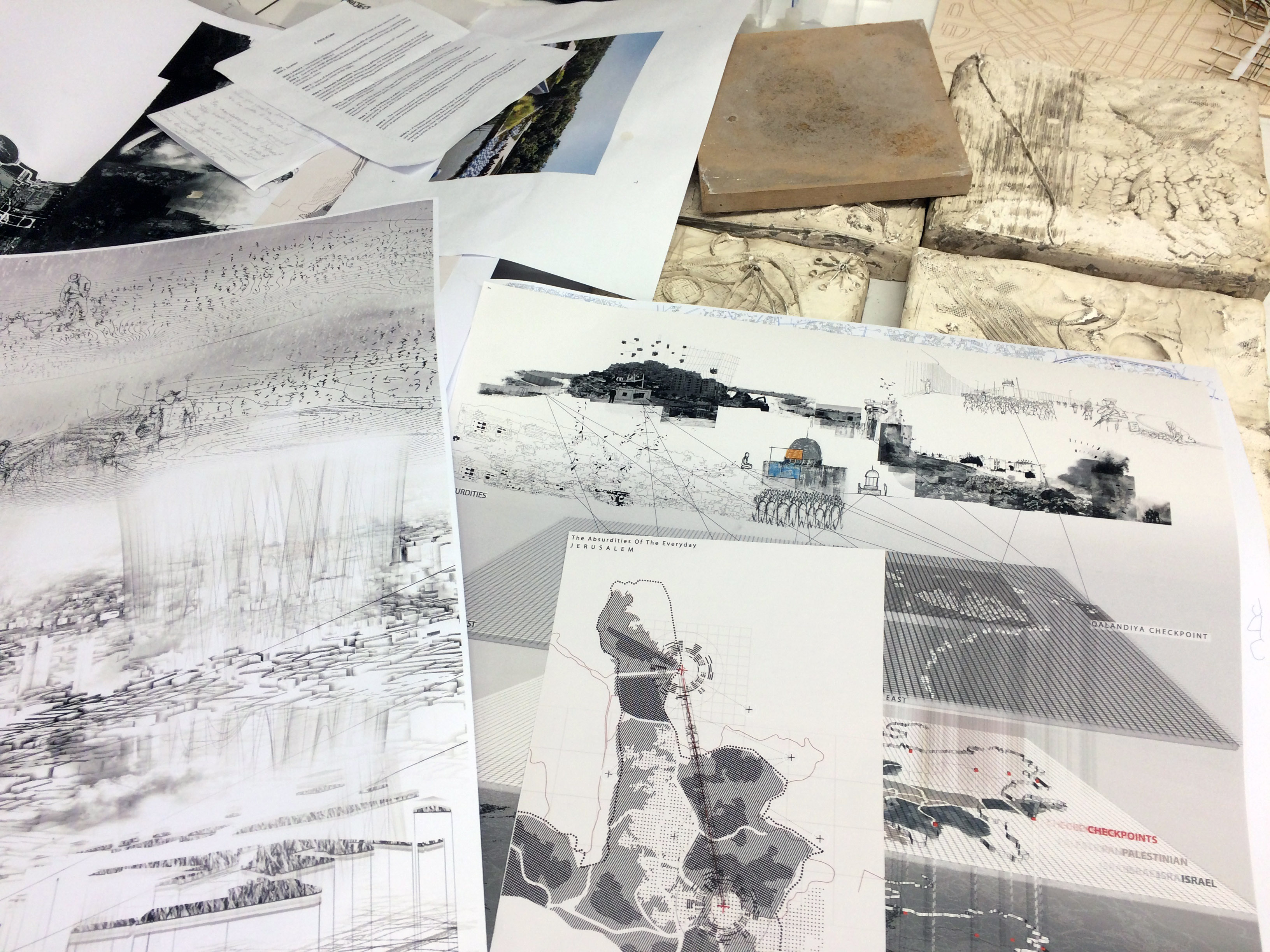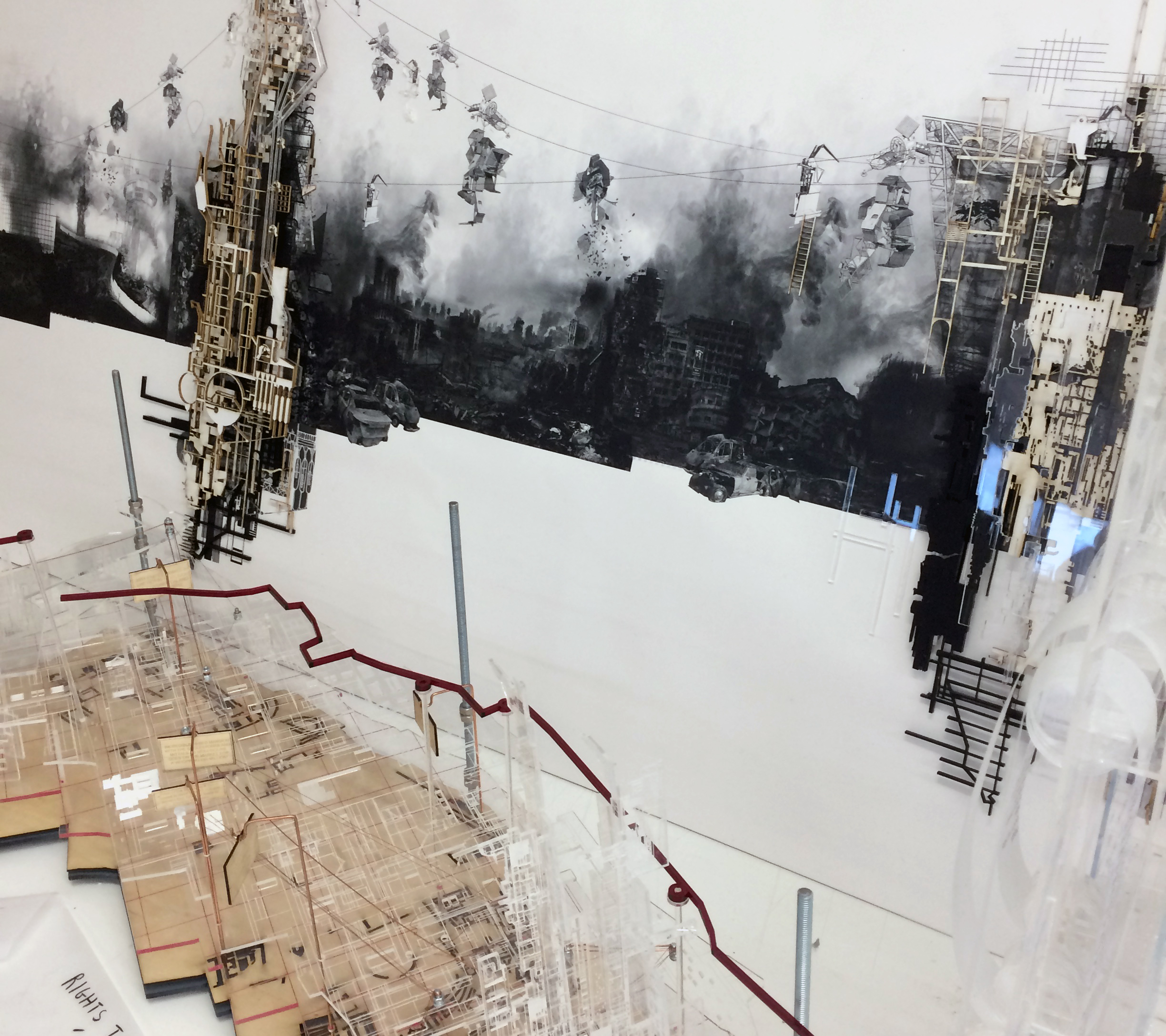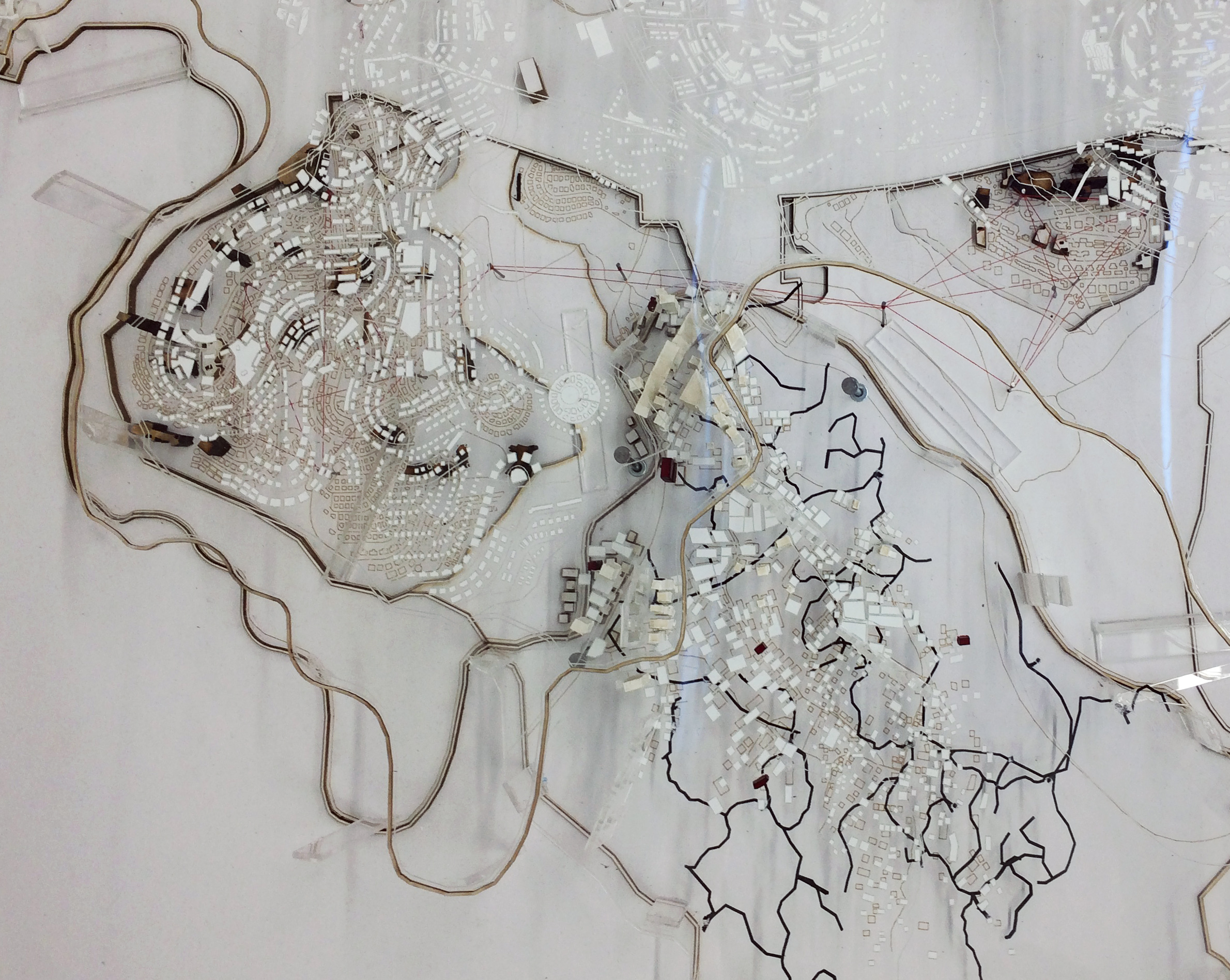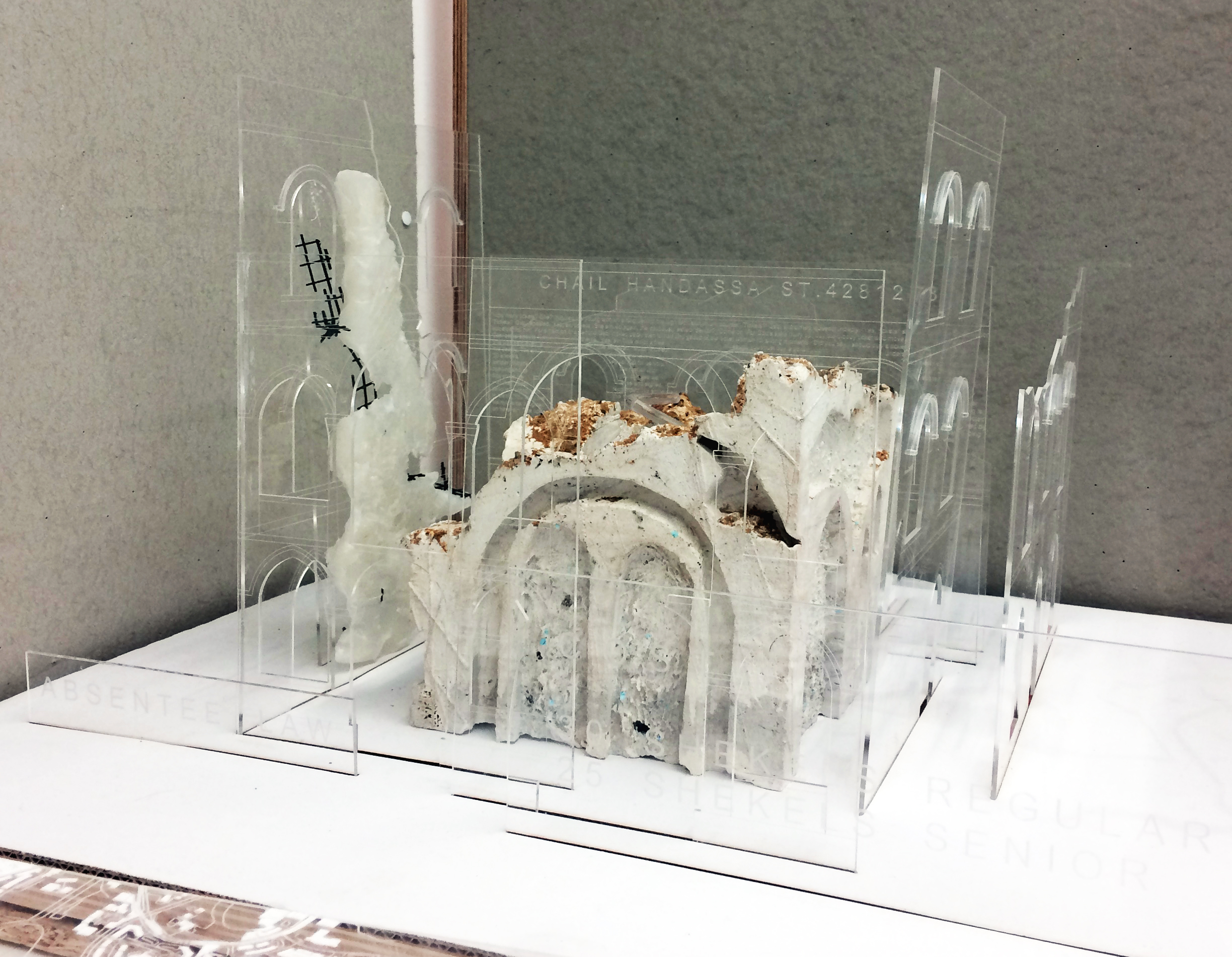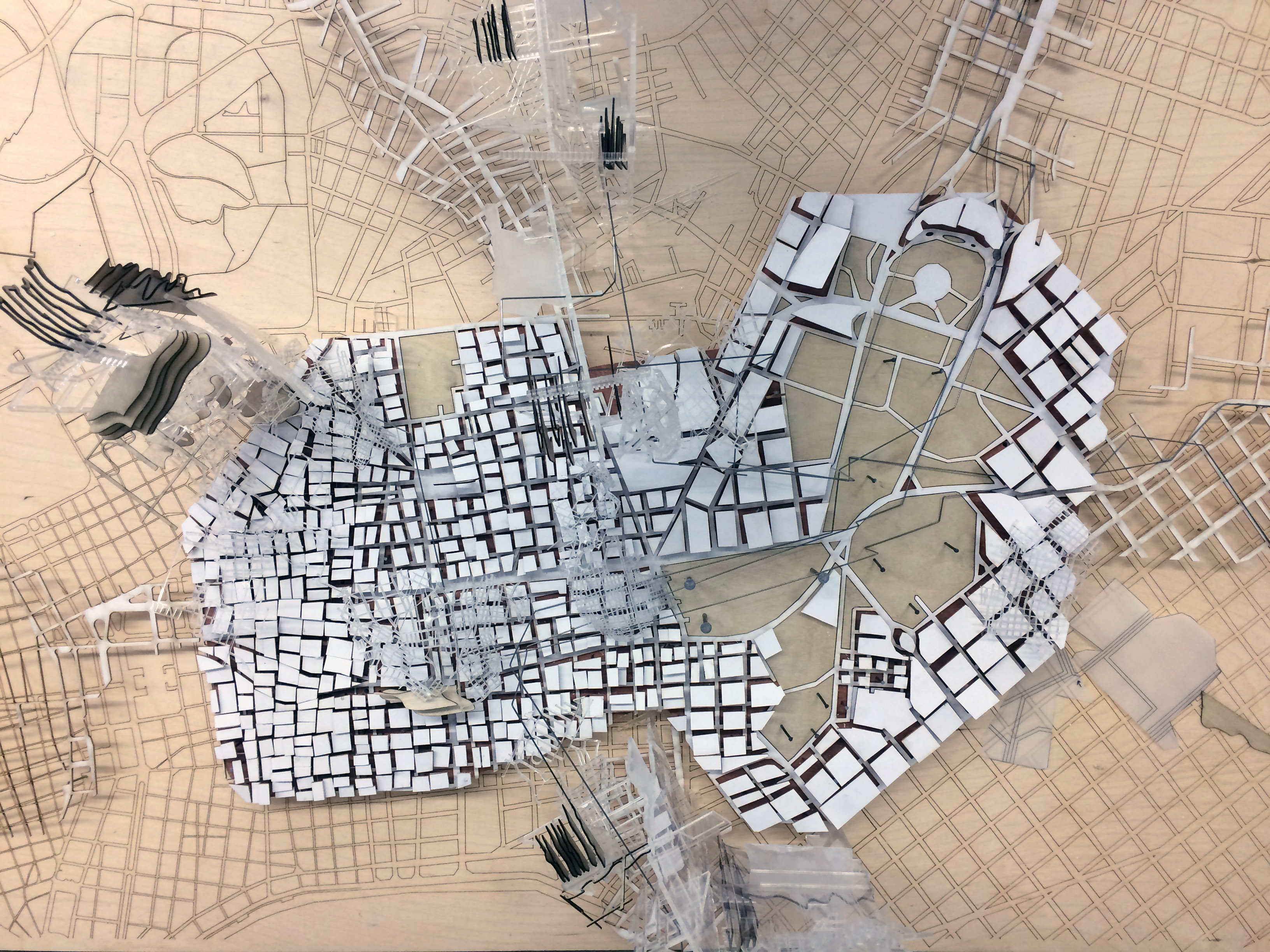Tutors: Nasser Golzari and Yara Sharif
Nasser Golzari and Yara Sharif are practicing architects and academics with an interest in design as a mean to facilitate and create resilient communities within contested geography. Combining research with design, their work runs parallel between their architecture practice NG Architects, London, and Design Studio 22 at the University of Westminster. They co-founded Palestine Regeneration Team (PART), a design-led research group that aims through speculative and live design projects to search for creative and responsive spatial possibilities. Golzari and Sharif’s collaborative live projects have won a number of awards including the 2013 Agha Khan Award, 2014 Holcim Award for Sustainable Construction, and recently RIBA President’s Award for Research 2016 on Cities and Communities Category (Commendation).
“Microbrigada” Decollage & Reassemble the Contested City
DS22 will continue their journeys across uncertain and invisible landscapes. This year we will be working on some of the world’s most fascinating cities including Havana, Jerusalem, London and others, each offering their own contradictions and complexities. All share, economic, political, colonial and post colonial history that is transforming their fabric and the lives of their inhabitants. The studio will re-read, de-collage and re-assemble these contested landscapes to identify their potentials and transform them into resilient nucleuses.
Sites: we will target the margin and the void spaces as potential sites of intervention. While they may offer some testimony to power relations where social exclusion, disposition of land and enclosure of resources occur, they can also be a fertile ground for change and reclamation.
Projects: the projects and the programmes are to restructure the power relation in the city through the margins and the voids where communities have been excluded and uncertainties are arising.
We are then to zoom in with specific architectural proposals to explore new typologies for a collective/ civic building/s to reclaim and reactivate social spaces.
While developing the programme, we will take clues from the ‘Microbrigada’ or micro brigades; a collective movement that emerged in Cuba in which thousands of homes were built in a short period of time to address the housing crisis and later inspired different forms of collectives in different countries.
In the process of unpacking our sites, we will be looking at 2 notions of contestation. In Havana and London for example, we will be looking at the economic contestation that makes these cities accessible for ‘the few’. In Jerusalem, we will be looking at geo-political contestation where the land, power relation and the access to resources, slice the city into disconnected cantons.
While London’s capitulation to global market forces continue and is in need of an urgent response, Havana is a fertile ground for a ‘rescue’. Jerusalem on the other hand, is in need for ‘stitching’ its fragmented landscape.
The current contestation of London in its different forms is resulting in the failure of the system to take care of its ‘subalterns’. Different forms of challenges are emerging; from the battle over land, the privatisation of social housing and education and many more that make the city exclusive for those who can afford it.
Havana
Havana is a big cake and everyone is trying to get a slice … Property Developers are queuing up to pounce as Cuba opens its doors to the world. (Oliver Wainwright, Feb 2016)
Havana is a resilient city where aging beauty and decay co-exit as a result of a half a century embargo. Considering Cuba’s gradual exposure to global economy –its future development is coming to a question.
Jerusalem
…A city of political planning and strategies of resilience, of collective fear and individual exchange, of physical and mental walls and their transgression in the every day. (Philipp Misselwitz, 2006)
PROJECT 1
DE-COLLAGE, RE-READ & RE-ASSEMBLE
- Initially, while working in small groups, we will re-read and re-draw the contested landscape using drawings — in addition to other conventional methods of research — as a tool to playfully explore the site and map its current realities.
- Starting from the voids and the margins,‘De-Collaging’ will be used as a technique to expose the potentials of the site and exaggerate the chaos caused by the uncertainties
- We will then propose a site strategy on the macro scale to ‘Re-Assemble’ the site, interrogate and explore spatial possibilities in its margins. The site strategy will be used in PROJECT 2 for your specific design proposal.
PROJECT 2
‘INSERTIONS’ WITHIN THE MARGINS: Rethinking the civic, or the domestic
- We will zoom into the site strategy developed from PROJECT 1 and propose specific architectural projects, or ‘insertions’ within the identified void or the marginal spaces.
- The inserted building/buildings could include a new typology for a collective/civic building with a self-managed programme, which can include the domestic and the work place.
- The proposals are to incorporate new forms of habitation that may subvert, or disrupt/dysfunction the contested powers and create new layers, conditions and architectural programmes that can empower and mobilise the excluded.
2nd year students can choose their own site of contestation for Project 2.
FIELD TRIP
Havana: We will visit the remarkable city with its unique buildings from arcaded houses to complex modular construction; the informal settlements around the metro railway, Nico Lopes Oil Refinery in Habana Del Este’ and Havana’s famous organiponicos, or small scale farms.
Jerusalem, Tel Aviv & Bethlehem: We will cross the contested and uncertain landscape through series of walks. We will visit live projects and self help initiatives taking place with local NGOs.
Of course you will also get to enjoy the heat and the beaches of the Dead Sea, the Mediterranean and the Caribbean.
